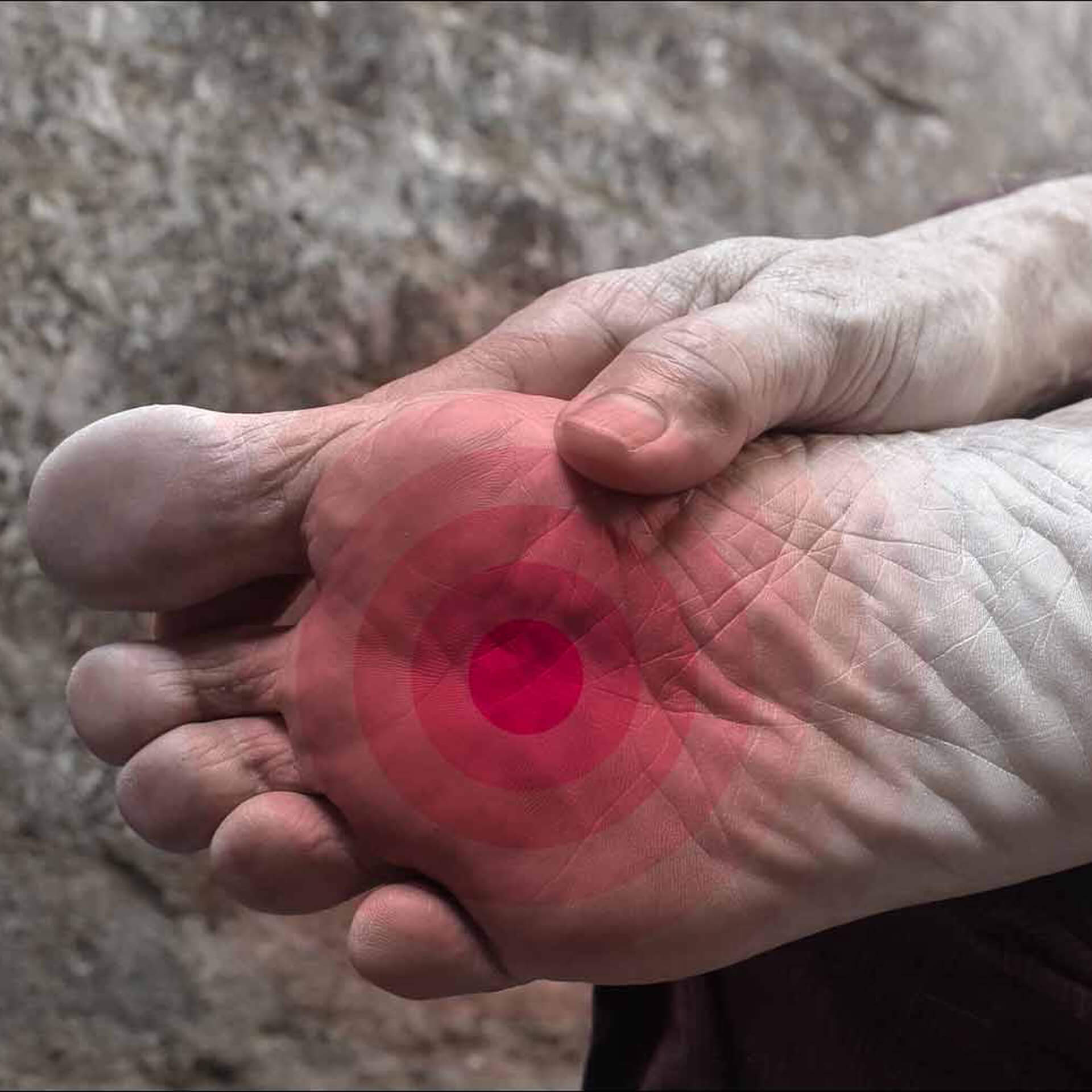Diabetic neuropathy is a nerve condition that may affect people with diabetes. It can take several forms:
Peripheral neuropathy is the most common kind of diabetic neuropathy. It typically affects your feet and legs first, then your hands and arms. Symptoms of diabetic peripheral neuropathy may include:
- Tingling
- Burning
- Sharp pains
- Cramps
- Increased sensitivity to touch
- Numbness
- Insensitivity to pain, heat, and cold
Diabetic peripheral neuropathy also increases your risk of developing ulcers (raw, nonhealing wounds) and infections.







